Graduation 2016: C14's Grand Finale
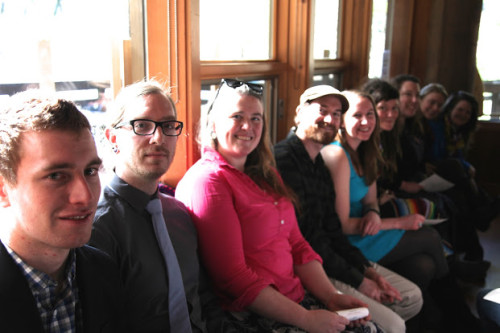
Phenology, or the study of natural cycles, is a constant part of life at the North Cascades Institute. We dive deep into when the first buds appear on trees, what bird songs we can here in that season and the height of all of the flowing water in the area. This year two of the largest, and most celebrated, phenological events at the Institute were the capstones and graduation of the 14th graduate cohort obtaining their Master’s in Outdoor Environmental Education with certificates in Non-profit Leadership Administration and Northwest Natural History.
Back in the summer of 2014, Cohort 14 (or better known as C14!) was born. These individuals then spent a year at the Institute’s Environmental Learning Center located on Diablo Lake, WA learning and teaching about the natural landscape. They then finished their degrees at Western Washington University.
Each of the nine cohort members poured their passion into their studies and made a permanent impact at the Institute. Their grand finale was giving their capstone presentations from March 15th-March 17th where staff, professors, family and Cohort 15 gathered to listen to the wise words from C14.
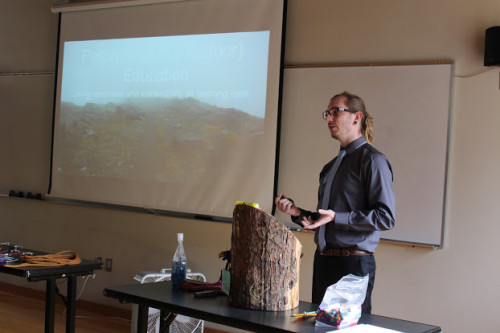
Kevin Sutton
Kevin Earhart Sutton gave his capstone on Perceptions in (Outdoor) Education: Using openness and vulnerability as learning tools. In his presentation he discussed the “masks” that we all wear and how outdoor education can be a tool to help empower people to take control of the masks they wear each day. Examples of masks include proficiency, extravertedness and stubbornness.
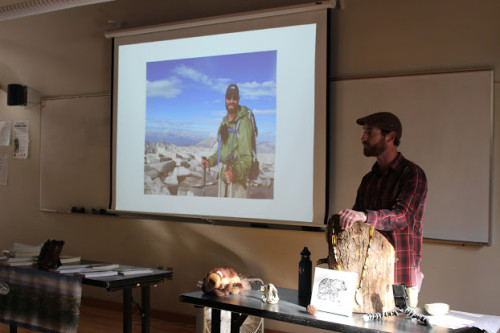
Mike Rosekrans
Michael J. Rosekrans’s presentation titled All My Relations discussed the Lakota prayer titled Mitakuye Oyasin (translated to all my relations). The prayer discusses the connections that are everywhere in nature, and how they are “all of my relations.” He discussed this prayer in depth and how it is a key part of Environmental Education as a whole and Mike’s personal transformation as an educator.
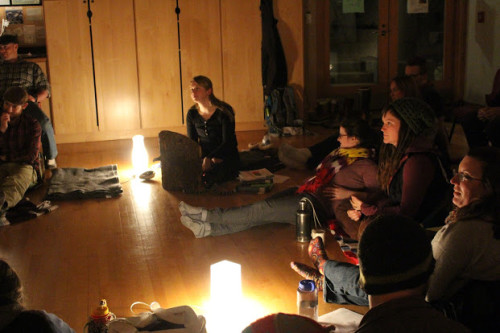
Chelsea Ernst
Chelsea Elizabeth Ernst set the stage for us to dive deeply into knowing our own bodies in Inner-Knowing Embodied. Through her discussions and activities, participants started listening to their bodies more for the stories that are best told through motion and feeling.
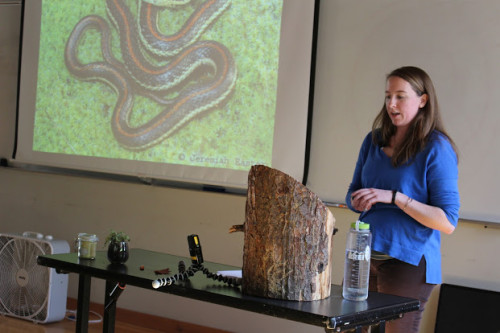
Lauren Ridder
Lauren Marie Ridder shared some of her natural teachers in Awakening to Place. The garter snake, for example, teaches Lauren about renewal and rebirth every time that she encounters one. She then invited us to discuss our own natural teachers and the lessons they have taught us.
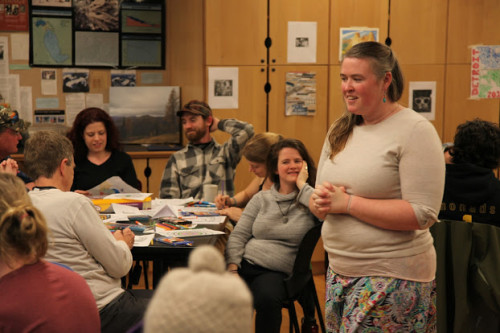
Kelly Sleight
Kelly Marie Sleight’s presentation on Not My Story: Honoring Diversity Through Multicultural Environmental Education had us participants sitting at tables filled with crafting supplies. While some of us started to paint, knit and mold Kelly explained that Multicultural Environmental Education seeks to make an atmosphere where every student can succeed. One of her largest challenges in class is the need for constant hand movement. Without that, she cannot focus. Her personal solution is to knit.
Kelly sees the marriage between multicultural and environmental education having students of various backgrounds engaged in many different and unique ways.
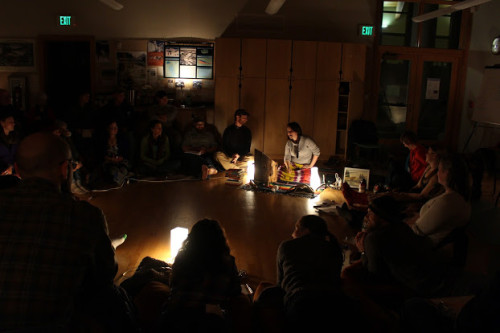
Liz Blackman
Elizabeth Jamison Blackman is a storyteller. In Root.ED: A Story That Reconnects she told her own story of connecting people and place through her soon to be non-profit Root.ED. In the coming years she seeks to lead the organization in having students of all ages tell their own stories to better connect with the landscape and each other.
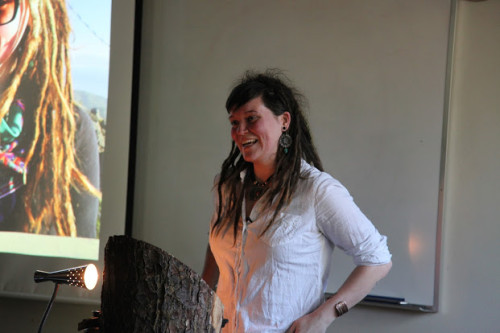
Petra Lebaron Botts
Petra D. Lebaron Botts has had an interesting relationship with the word “too.” In Dividing by Too: Extremophilia in Environmental Education Petra described how too can often be divisive in society. Someone is too fat, too ugly, too stupid. People can even take the word to use as a shield: I’m too weird to go there, and I like it. During her work with wilderness therapy Petra witnessed first hand how Environmental Education often takes the “too”s out of the social structure and allows people to just be people.
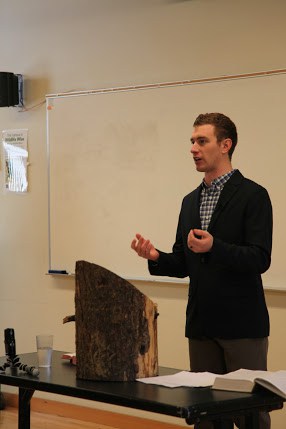
Gavin Willis
Gavin I Willis discussed the often competing views of religion and science in All It Contains: Biblical Perspectives on Environmental Care. Gavin sees his faith as a Christian as motivation for being an environmental educator. He hopes to continue creating a space where the objective and subjective are not polar opposites but are used to create a healthier world for all.
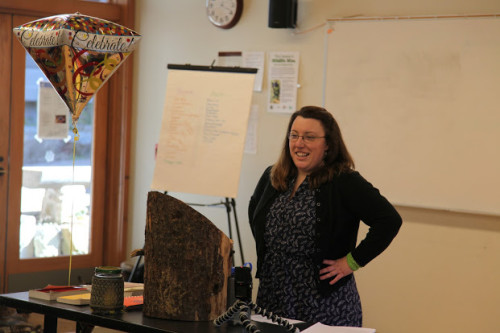
Rachel Gugich
Rachel Anne Gugich defines herself as a superhero. In Sensitivity in Learning and Environmental Education, Rachel described how being an introvert gives her a “superhuman sensitivity” to her surroundings and work. She hopes to continuously create educational opportunities where students can each bring their own powers for the betterment of learning.
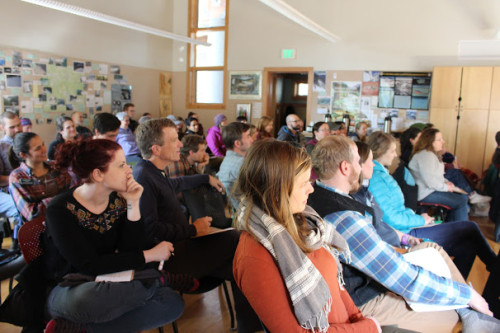
Families, staff and C15 gathered to hear each of the nine capstone presentations.
Each capstone presentation had a audience of about fifty including family, staff and the 15th cohort at the Institute. For three days we were a fifty member educational community engaged and ready to take the ideas presented into the larger world.
But those three days were filled with so much more! One of the more secretive traditions at the Institute is the “Passing of the Paddle.” During graduation week the older cohort passes responsibility to the younger cohort by giving them a paddle. This symbolizes that they are controlling the direction and movement of the program as a whole. The first part involved C14 sharing their wisdom and knowledge of this magic place. The second part involved honoring all of the support that each cohort has each year. While I cannot say exactly what happened due to tradition, I can say that C15 got to know each member of both cohorts at a deeper level and that fun times were had by all.
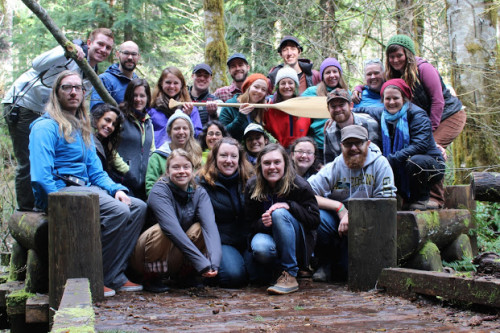
Cohorts 14 and 15 after the first part of “Passing the Paddle.”
During their graduation at the Institute, C14 received their certificates in Non-profit Leadership Administration and Northwest Natural History and the blessings of a few of their teachers, mentors and friends at the institute. They received their degrees at Western Washington University two days later.
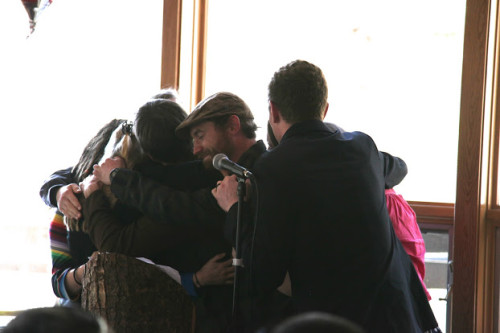
C14 embracing Joshua Porter during the Graduation Ceremony.
After many tears and exchanges of hugs, C14 started part two of the Passing of the Paddle Ceremony. In it Gavin explained to the audience that without their love and support, C14 would never have completed this rigorous residency. To symbolize C14’s gratitude they passed the paddle to C15 with the help of the audience.
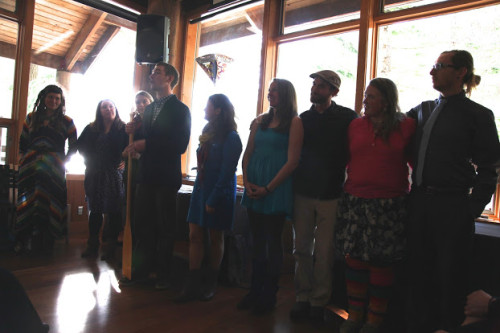
Gavin telling the audience what Passing the Paddle represents.
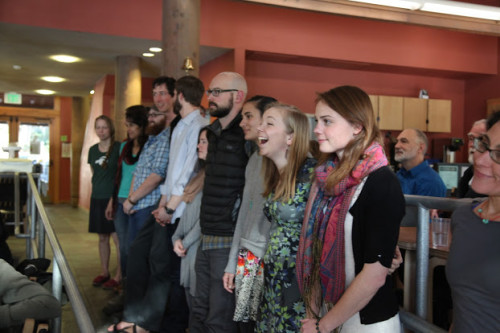
C15, on the other side of the room, ready to receive the paddle.
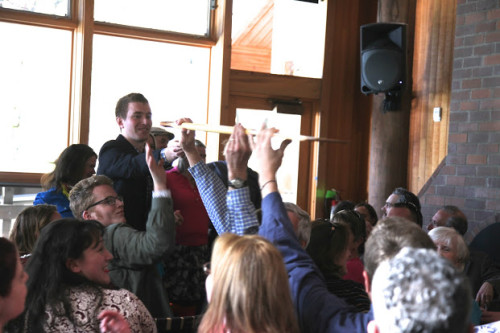
Honoring all of our family and friends who have and will support the graduate cohorts.
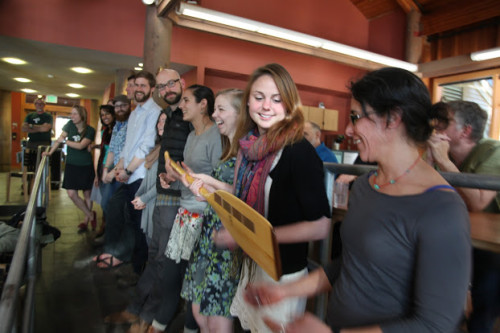
C15 is now officially the only graduate cohort at the Institute (until C16 arrive in the summer).
Circles are an incredibly powerful tool in environmental education as a whole. They can be used to symbolize everything from natural cycles to group dynamics. When C14 started Joshua Porter had each member stand in a circle and “call their name back from the mountains.” Used as an intentional transition, the activity symbolizes each member taking with them all that they had learned.
In their final circle as a graduate cohort, C14 called back to the mountains on the shores of Diablo Lake. Through all the traditions, presentations and ceremonies, they are now ready to set out into the world.
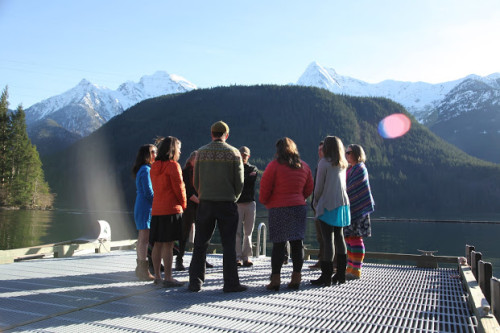
C14’s last circle as graduate students.
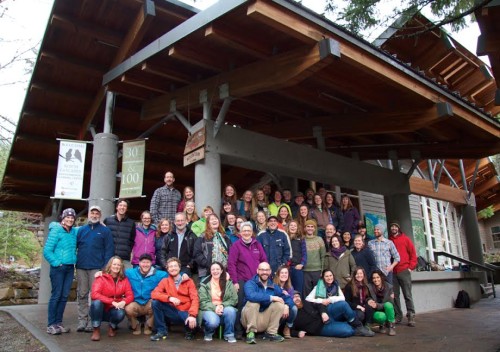
North Cascades Institute Staff, 2016 at the Environmental Learning Center. Photo courtesy of Jessica Haag.
Kevin, Mike, Chelsea, Lauren, Kelly, Liz, Petra, Gavin and Rachel, all of us at the Institute wish you the best. Thank you not only for the amazing work you have done but also for the amazing work you are about to do.

